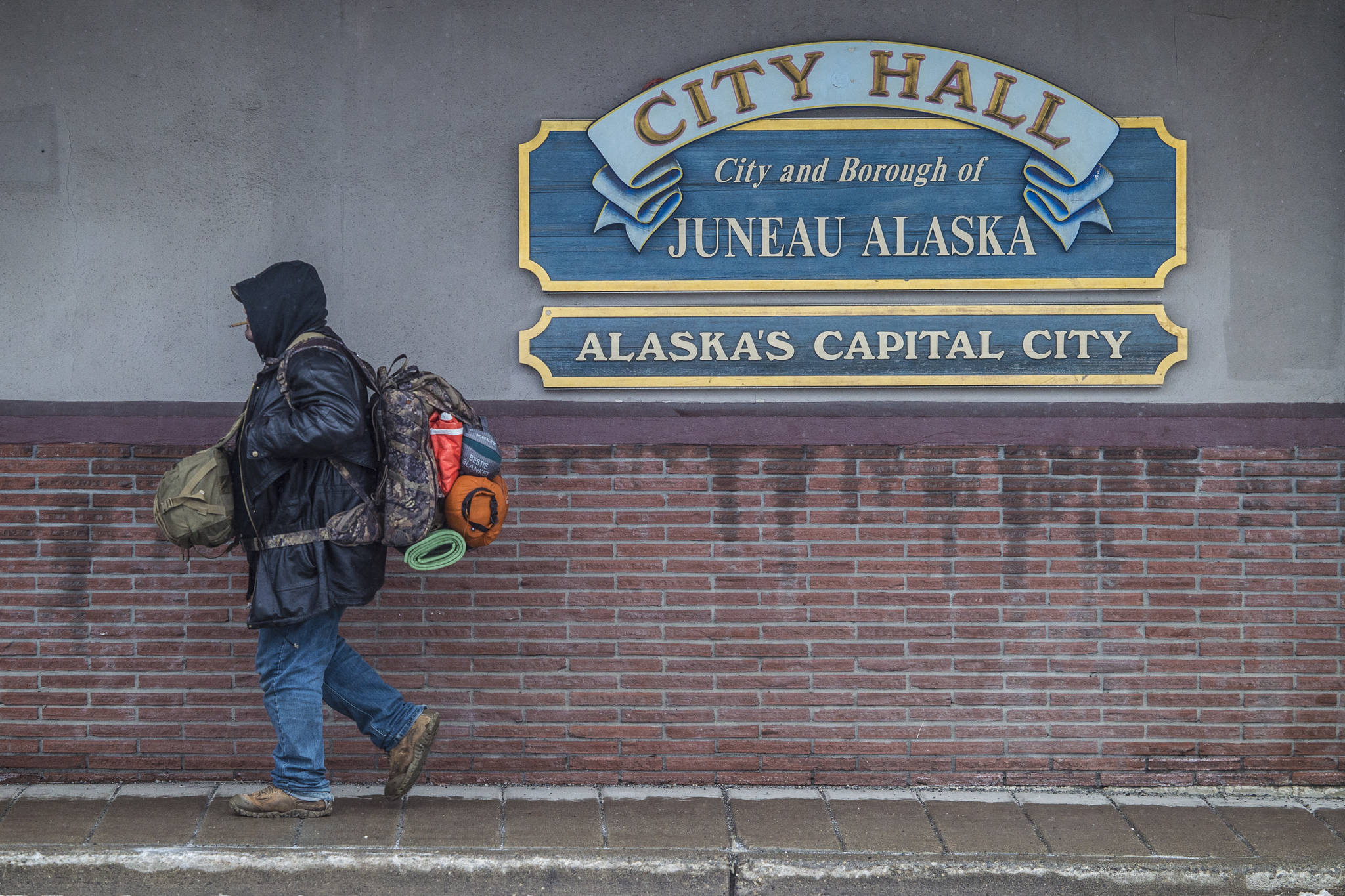Juneau’s sleep off program could have new management and a new name.
City and Borough of Juneau’s Committee of the Whole Monday evening authorized the city manager to pursue possibly moving the program from Bartlett Regional Hospital to Capital City Fire/Rescue under the new name Community Assistance Response and Emergency Services (CARES).
That decision came by a split 6-3 vote and raised a flurry of questions about staffing, program costs and impact the change would have on the hospital.
Mayor Beth Weldon and Assembly members Maria Gladziszewski, Michelle Bonnet Hale, Carole Triem, Mary Becker and Alicia Hughes-Skandijs voted for exploring the idea and preparing budget documents related to CARES. Assembly members Loren Jones, Rob Edwardson and Wade Bryson voted against it.
“These are really important questions to ask,” said CCFR Chief Rich Etheridge during a short recess during the meeting.
The matter will be further investigated, and it will have to come back before the Committee of the Whole.
Etheridge outlined what the program could look like during a presentation to the committee.
It would change sleep off hours from 24/7 to 8 p.m-.8 a.m., people in need of shelter would be taken to space leased from St. Vincent de Paul instead of Rainforest Recovery, it would be staffed by six full-time employees who would be new to CCFR.
“We’re not asking existing firefighters to go do the sleep off program,” Etheridge said.
[City unveils its proposed 2020 budget]
Assembly member Michelle Bonnet Hale asked how reducing the sleep off hours to 8 p.m.-8 a.m. would affect the hospital and emergency room admissions.
“Between the hours of 8 p.m. and 8 a.m. is when roughly 95 percent of the individuals who use sleep off,” said Bradley Grigg, chief behavioral health officer for Bartlett Regional Hospital.
The proposed CARES program would be expected to cost about $800,000, Etheridge said.
The potential cost of the program raised eyebrows because it’s what the city currently spends for the 24-hour sleep off program.
“I would like to see more bang for the buck,” Bryson said. “I don’t think the citizens would look at that as a wise use of money.”
He said the cost seemed particularly high because on average 24 people use shelter aspect of the service each month.
Etheridge and Grigg said the transportation calls — especially to take inebriated residents to the Housing First facility — have conversely been on the rise.
Bryson suggested Lemon Creek Correctional Center as potential cheaper option.
[“Sudsy Slim,” a movie from the “Tundra” cartoonist rides into Juneau]
After the presentation, Etheridge told the Juneau Empire the $800,000 figure is an estimate and may be inflated by start-up costs.
“It’s going to kind of vary,” Etheridge said. “I think $800,000 is on the high end.”
Edwardson said the service would be “a bargain at twice the price” if it saves lives. However, he still disapproved of the idea for reasons summed up by Jones, who said the fire department isn’t the best entity to take over the program.
Jones said the idea was poorly thought out, being pursued in the wrong way and getting people with a history of substance misuse to a place of medical treatment is a good thing.
“I am adamantly opposed,” said Jones. “I do not think it does any service to the fire department despite the chief’s memo, and I think it absolves the hospital of its medical responsibility to the community.”
• Contact reporter Ben Hohenstatt at 523-2243 or bhohenstatt@juneauempire.com. Follow him on Twitter at @BenHohenstatt.

